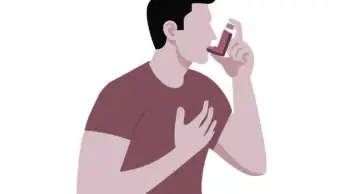My Medication Passport (MMP) is an example of how patients and carers can be involved in the development, roll-out and evaluation of services that affect them. Funded by the National Institute for Health Research Collaboration for Learning in Applied Health Research and Care North West London, the MMP project aimed to improve communication about medicines across care settings and reduce inappropriate prescribing for older patients.
MMP, a patient-held record of medicines use, is available as a pocket-sized booklet and as a smartphone app.
The work was conducted by the CLAHRC NWL-funded “Improving prescribing for the elderly” group in collaboration with the NIHR Imperial Patient Safety Translational Research Centre.
Here I describe the uptake of the MMP booklet and app, feedback from patients who are using them and some future aspirations for the project.
Uptake and evaluation
Since MMP’s launch in April 2013, nearly 50,000 pocket booklets have been ordered by pharmacies, hospitals, charities, GP practices, nursing homes and patients across England and Scotland and over 3,000 downloads of the app have been made in 37 countries worldwide.
Pocket booklet
Initial qualitative research has been carried out in a selection of patients from three acute NHS trusts and one GP practice. Researchers found that out of 133 patients, questioned four to six weeks after being given an MMP booklet, 70% said that they carried it around with them at all times.
Just over half of patients reported that the MMP booklet increased their confidence when talking to their GP about their medicines and 86% said that they would recommend it to a friend or family member.
App
MMP app users (1,693) were asked to provide feedback about their experiences of the tool in September 2013. Most users rated the app “excellent” and many agreed that it was “helpful for keeping an accurate record of medicines and any changes made” (80% and 73% of users, respectively). Some 83% of users found the app “easy” to understand, and over 75% said that the passport is something they would recommend to a relative or friend.
Improvement
Patients and users of the MMP booklets and app were also asked to suggest ways in which the resources could be improved.
Suggestions for changes to the MMP booklets included adding space to record more information, such as side effects, allergies, medical conditions and hospital visits.
Users of the MMP app also requested more space to record health information and suggested ways that the app could be further enhanced, such as enabling multiple users, being able to export or share information and incorporating a medication prompting system. A working group has been set up to explore these comments and an updated version of the app will be available soon.
A more comprehensive evaluation is planned imminently and will gather information from healthcare professionals as well as patients.
Key user groups
Although the MMP was initially developed for older patients, other key user groups have since been identified. For people who do not have a fixed address, MMP allows them to keep a personal record of their medicines with them at all times that is recognisable and accessible to healthcare professionals and organisations.
There are now several “MMP champions” in the homeless community who can explain the benefits of the passport to their peers and help them fill it out — proactively encouraging the use of the passport in this community.
Mencap, a learning disability charity, has reported that MMP has given its service users more independence and confidence in managing their own medicines — enabling more of them to go to hospital and GP appointments without a carer. According to MIND — a mental health charity — patients find it rewarding and reassuring to have a record of their medicines and medical history that belongs to them.
Vision for the future
MMP can support patients to get the best from the medicines they are prescribed. I believe that this kind of initiative can help promote a shift, away from the traditional unidirectional flow of information to patients, towards a culture where patients set the agenda for their care.
Local social networks have provided an outlet for MMP users to engage and discuss the MMP, and help to promote it to other patients.
The aim of the project is now to make MMP accessible to every patient in the UK, and the vision is for MMP to be used to ensure patient empowerment with regard to their care. After all, it is not just about the medicines — it is about the patient, the person.
Publicity and awards
My Medication Passport was officially launched in April 2013 after it was piloted in Imperial College Healthcare NHS Trust.
Key features of its launch included: print and online media coverage; presentations and workshops with health professionals and patients (nationally and internationally); and a “Twinterview” with a patient representative on the social networking site Twitter.
Awards and recognition that the MMP project has received include:
- Endorsements from INVOLVE — a national advisory group on public involvement with the NHS — and the National Institute for Health Research
- Winner of “Best industry-NHS partnership” at the National Pharmacy Management Forum (the project has worked collaboratively with AstraZeneca)
- Winner of “Best regional or national spread” at the Collaboration for Learning in Applied Health Research and Care North West London continued learning and development event
Kandarp Thakkar is deputy chief pharmacist (clinical services) at Royal National Orthopaedic Hospital in London and member of the frailty theme for the Collaboration for Learning in Applied Health Research and Care North West London.
E:
kandarp.thakkar@rnoh.nhs.uk


